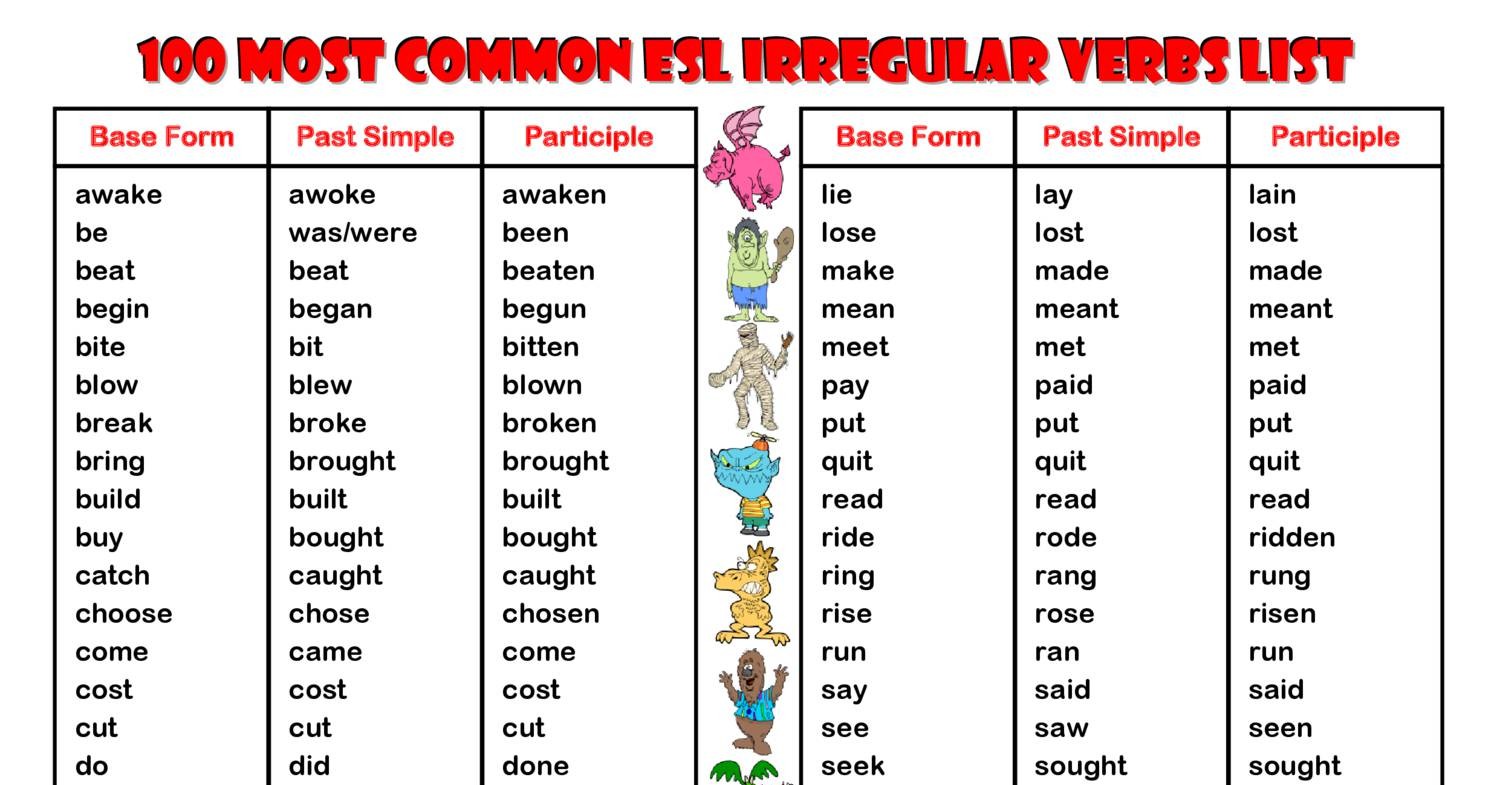
- List Of All To Be Verbs
- List Of All Verbs In English
- List Of All Verbs In English Language
- List Of All Verbs In French
- List Of Types Of Verbs
List Of All To Be Verbs
All verbs to pass the JLPT N5 This is the list of all verbs you need to know in order to pass the JLPT N5. Wafa ne bewafai ki hai. Click on the “Share” button at the end of the article and press the printer symbol in order to change to a printer friendly version.
List Of All Verbs In English
The Forms of To Be The Greek sea god, Proteus, was (like the sea) capable of changing form in an instant. In order to get any decent information out of him, you had to grab him and hold on tight while he went through his various forms lion, wild boar, snake, tree, running stream it wasn't easy. The verb To be is said to be the most protean of the English language, constantly changing form, sometimes without much of a discernible pattern. Considering that we use it so often, it is really too bad that the verb To be has to be the most irregular, slippery verb in the language. Present Tense I am We are You are You are He/She/It is They are Past Tense I was We were You were You were He/She/It was They were Perfect Form (past participle) I have been, etc.
Progressive Form (present participle) I am being, etc. We must choose carefully among these various forms when selecting the proper verb to go with our subject. Singular subjects require singular verbs; plural subjects require plural verbs. That's usually an easy matter.
List Of to Be Verbs – 19 Resume Adjectives List Wednesday, June 27th, 2018 List Of to Be Verbs – From the thousands of photographs on-line about list of to be verbs, we selects the best series together with greatest image resolution simply for you, and now this pictures is usually considered one of graphics choices in your best photographs.
List Of All Verbs In English Language
We wouldn't write The troops was moving to the border. But some sentences require closer attention. Do we write The majority of students is (or are) voting against the referendum'? Review carefully the material in our section on, and notice how often the choices we make require a familiarity with these forms of the To be verb. Simple Questions We create simple yes/no questions by inverting the order of subject and the To be verb. • Is your brother taller than you?
List Of All Verbs In French
• Am I bothering you? • Were they embarrassed by the comedian?
List Of Types Of Verbs
The same inversion takes place when To be is combined with verbs in the progressive: • Am I working with you today? • Is it snowing in the mountains? • Were your children driving home this weekend? The Linking and Existential 'To Be' The verb To be most frequently works in conjunction with another verb: He is playing the piano, She will be arriving this afternoon. Occasionally, though, the verb will stand by itself, alone, in a sentence. This is especially true in simple, brief answers to questions. Who's going to the movies with me? I am Who's responsible for this mess in the bathroom? She is. In sentences such as these, the subject usually receives the intonation stress and the voice falls off on the verb. An auxiliary can be combined with the base form of To be to provide simple answers to questions that use forms of to be. Is Heitor in class this morning? Well, he might be. Is anyone helping Heitor with his homework? I'm not sure.